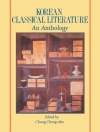Faust is Goethe’s magnum opus and considered by many to be one of the greatest works of German literature. The story takes place in multiple settings, the first of which is heaven. Mephistopheles makes a bet with God – he says that he can lure God’s favorite human being – Faust, who is striving to learn everything that can be known, away from righteous pursuits. Faust makes an arrangement with the devil – the devil will do everything that Faust wants while he is here on Earth, and in exchange Faust will serve the devil in Hell. In Faust, Goethe focuses on social phenomena such as psychology, history and politics, in addition to mystical and philosophical topics. In contrast to Faust Part One, in Part Two, the focus is no longer on the soul of Faust, which has been sold to the devil, but rather on social phenomena such as psychology, history and politics, in addition to mystical and philosophical topics. The second part formed the principal occupation of Goethe’s last years. This edition brings to you the complete Faust (Part One and Two) for your complete reading pleasure along with the lesser known Coleridge translation. This meticulously edited collection is formatted for your e Reader with a functional and detailed table of contents:
Faust
– Faust (Part One)
– Faust (Part Two)
– Faustus (Translated by Samuel Taylor Coleridge)
Criticisms:
Life of Johann Wolfgang Goethe (James Sime)
Goethe: The Writer (Ralph Waldo Emerson)
Byron and Goethe (Giuseppe Mazzini)
The Faust-Legend and Goethe’s ‘Faust’ (H. B. Cotterill)
Mengenai Pengarang
Johann Wolfgang von Goethe (1749-1832) was a German writer and statesman, best known for his tragic play, Faust. His body of work includes epic and lyric poetry written in a variety of meters and styles, prose and verse dramas, memoirs, literary and aesthetic criticism, novels, numerous literary and scientific fragments and many more. A literary celebrity by the age of 25, Goethe was ennobled by the Duke of Saxe-Weimar, Karl August, following the success of his first novel, The Sorrows of Young Werther. He was also an early participant in the Sturm und Drang literary movement.












